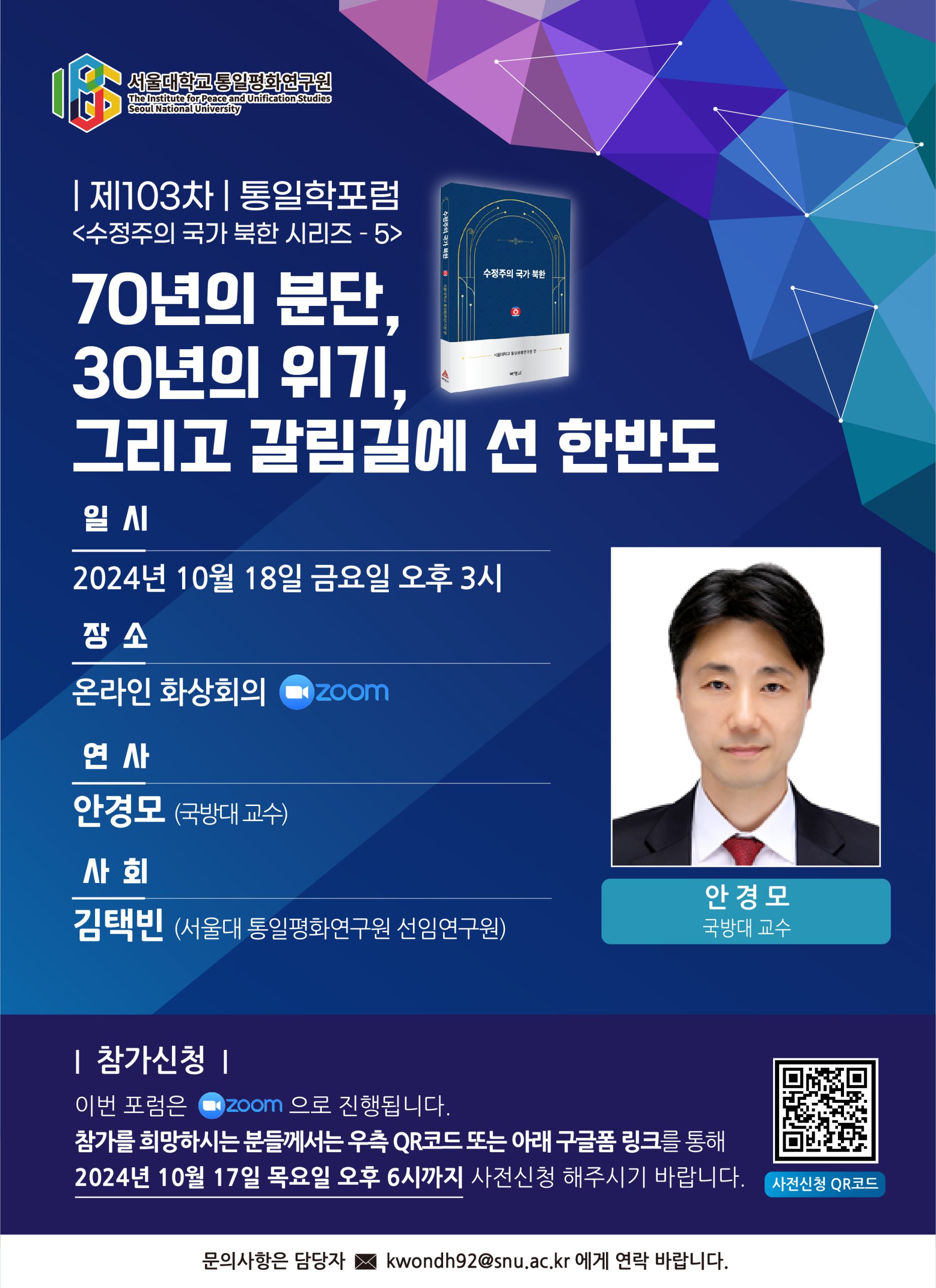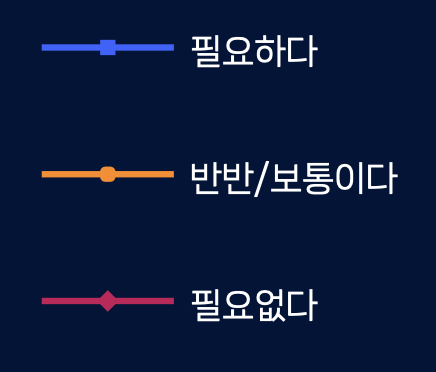[103th Unification Studies Forum] 70 years of Division, 30 years of Crisis, and Han peninsula at Crossroads
 Date: Friday, October 18, 2024, 15:00 – 17:00 (KST)
Date: Friday, October 18, 2024, 15:00 – 17:00 (KST)
Venue: Online video conference (ZOOM)
Speaker: Ahn, Kyung-mo (Professor, National Defense University),
Moderator: Kim, Taek-bin (Senior Researcher, IPUS at SNU)
Topic: 70 years of Division, 30 years of Crisis, and Han peninsula at Crossroads
The Institute for Peace and Unification Studies at Seoul National University(IPUS at SNU) hosted the 103th Unification Studies Forum on Friday, October 18, 2024, under the theme of “70 years of Division, 30 years of Crisis, and Han peninsula at Crossroads”. The Unification Studies Forum is an expansion and reorganization of the Unification Policy Forum, which was held 75 times between 2006 and 2020, and is now in its 103th edition. The forum was moderated by Dr. Kim Taek-bin, a senior researcher at IPUS, who opened the forum with a welcome speech.
Professor Ahn Kyung-mo particularly explained North Korea’s “new strategic line” as a national strategy following the 2018 Korean Peninsula peace process. Through this new strategic line in 2018, North Korea attempted to shift from a balanced strategy, characterized by the byungjin line, to a bandwagoning strategy, but this effort faltered alongside the peace process. After several years of transitional deliberation, North Korea made it clear by 2022 that it would return to the byungjin line, aiming for structural peace based on its own capabilities rather than pursuing relational peace grounded in mutual trust. The reemerged byungjin line’s core lies in combining the logic of an arms race, centered on nuclear power, with a realist perspective focused on national capabilities and variables, seeking to achieve wealth and military strength under sanctions through self-reliance.
As part of this balanced strategy, one can also approach the North’s northern triangle relations as an external balancing measure. North Korea’s cooperation with China, with which it shares a traditional friendship, and recently with Russia, with whom it has signed new agreements to tighten their relationship, must be viewed in the context of this shift from a bandwagoning strategy to a balanced strategy. The same applies to North Korea’s strategy toward South Korea. Since 2018, North Korea emphasized that the South was not its main enemy and attempted to manage inter-Korean relations stably. However, after the failure of the Hanoi summit, North Korea adopted a new strategic line, reentering a phase of conflict that culminated in last year’s presentation of the “two hostile states theory.” How then should we respond to this two-state theory, which has emerged as a result of North Korea’s strategic shift? Some have suggested an optimistic view, pointing out that East Germany also proposed a two-state theory before reunification, but it did not prevent reunification. However, the quantity and quality of exchanges and cooperation between East and West Germany were incomparable to those of the two Koreas. Furthermore, the unification of East and West Germany occurred under the international conditions of détente, while the current international situation surrounding the Korean Peninsula is vastly different. Therefore, rather than falling into an overly optimistic view, a serious deliberation on inter-Korean relations is required at this time.
In concluding the forum, Professor Ahn noted that, while it is true that conflict and confrontation have persisted throughout the 70 years of division, one cannot deny that there have also been positive phases of dialogue and cooperation. He questioned whether we should now return to a path of hostility after these 70 years, and urged a reflection on whether there are alternative options available. He emphasized the need to explore various options that serve South Korea’s interests, going beyond the frameworks of past North Korea policies and applying imagination in addressing the current challenges.


















